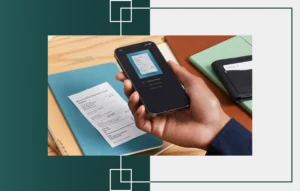With food prices already straining household budgets, the last thing families need is additional taxes on their grocery bills. Yet millions of Americans face this reality every time they shop. The U.S. Census Bureau’s 2024 Household Pulse Study found that 6.5 million Americans often don’t have enough to eat, and research shows that the most food-insecure counties in the US are precisely those that still levy sales tax on groceries.
Here’s what you need to know about grocery sales tax in 2026.
Which States Tax Groceries in 2026?
The good news is that most states don’t require sales tax on groceries, such as bread, vegetables, and other essentials. However, 9 states still impose some form of grocery tax, though many offer reduced rates compared to their standard sales tax.
States that tax groceries
Here are states that tax groceries at the full rate:
| State | Tax status | Rate |
|---|---|---|
| Hawaii | Full rate | 4% |
| Idaho | Full rate | 6% |
| New Mexico | Full rate | 4.875% |
| South Dakota | Full rate | 4.20% |
While New Mexico offers a tax exemption for groceries, the exemption only applies to retail food stores (N.M. Stat. § 7-9-92). To qualify, a retailer must be approved by the state for a Retail Food Store Certification (NM Taxation and Revenue Department form RPD-41295). Therefore, since a certificate is needed for the exemption to apply, food can be considered taxable in the state.
States with no statewide grocery tax
The remaining 41 states plus Washington, D.C., do not impose state-level sales tax on groceries. This includes:
| State | Tax status | Notes |
|---|---|---|
| Alaska | Does not have a statewide sales tax | Local taxability on groceries varies. |
| Arkansas | No state sales tax on groceries | Locals can tax groceries at the full local sales tax rate. |
| Arizona | No state sales tax on groceries | Localities can impose a tax on groceries. |
| California | No state sales tax on groceries | Local sales tax can apply to groceries. |
| Colorado | No state sales tax on groceries | Cities and counties have the option to tax food. |
| Connecticut | No state sales tax on groceries | Local jurisdictions cannot impose local sales taxes. |
| Delaware | Does not have a statewide sales tax | |
| Florida | No state sales tax on groceries | |
| Georgia | No state sales tax on groceries | |
| Illinois | No state sales tax on groceries | Local jurisdictions can apply a 1% local rate to sales of groceries. |
| Indiana | No state sales tax on groceries | |
| Iowa | No state sales tax on groceries | |
| Kansas | No state sales tax on groceries | Local sales tax can apply to food. |
| Kentucky | No state sales tax on groceries | |
| Louisiana | No state sales tax on groceries | Local sales tax can apply to food. |
| Maine | No state sales tax on groceries | |
| Maryland | No state sales tax on groceries | |
| Massachusetts | No state sales tax on groceries | |
| Michigan | No state sales tax on groceries | |
| Minnesota | No state sales tax on groceries | |
| Montana | Does not have a statewide sales tax | |
| Nebraska | No state sales tax on groceries | |
| Nevada | No state sales tax on groceries | Local sales tax may apply to grocery sales, depending on the local ordinance. |
| New Hampshire | Does not have a statewide sales tax | |
| New Jersey | No state sales tax on groceries | |
| New York | No state sales tax on groceries | Local sales tax may apply to the sale of groceries, depending on the city. |
| North Carolina | No state sales tax on groceries | A 2% local tax can apply to the sale of groceries. |
| North Dakota | No state sales tax on groceries | |
| Ohio | No state sales tax on groceries | Local sales tax can apply to grocery sales. |
| Oklahoma | No state sales tax on groceries | Local sales tax can apply to grocery sales. |
| Oregon | Does not have a statewide sales tax | |
| Pennsylvania | No state sales tax on groceries | |
| Rhode Island | No state sales tax on groceries | |
| South Carolina | No state sales tax on groceries | Local sales tax can apply to grocery sales. |
| Texas | No state sales tax on groceries | |
| Vermont | No state sales tax on groceries | |
| Virginia | No state sales tax on groceries | The local sales tax of 1% applies to food for home consumption. |
| Washington | No state sales tax on groceries | |
| West Virginia | No state sales tax on groceries | |
| Wisconsin | No state sales tax on groceries | Local sales tax can apply to the sale of groceries. |
| Wyoming | No state sales tax on groceries |
States that tax groceries at a reduced rate
Five states tax groceries at a reduced rate:
| State | Tax status | Rate |
|---|---|---|
| Alabama | Reduced rate | 2% |
| Missouri | Reduced rate | 1.225% |
| Mississippi | Reduced rate | 5% |
| Tennessee | Reduced rate | 4% |
| Utah | Reduced rate | 1.75% |
Understanding local vs. state grocery tax
Even if your state doesn’t tax groceries, you might still pay local grocery taxes. This creates a patchwork system that can be confusing for shoppers.
How local grocery taxes work
Some states that exempt groceries at the state level still allow local jurisdictions to impose their own taxes on groceries. Here’s how this works in practice:
Example: Shopping in Cherokee County, Georgia
- Georgia state tax on groceries: 0% (exempt)
- Cherokee County local tax: 2%
- Total tax on a loaf of bread: 2%
This means you could drive from one county to another and face different tax rates on the same groceries.
What qualifies as tax-exempt groceries?
Not everything sold at a grocery store qualifies for tax exemptions. States have varying definitions of what constitutes “groceries,” leading to some surprising distinctions.
Generally tax-exempt items
- Basic food staples (bread, milk, vegetables, meat)
- Items eligible for purchase with SNAP benefits
- Unprepared foods for home consumption
Often still taxable
- Candy and soft drinks: Many states specifically exclude these from grocery exemptions
- Alcoholic beverages: Almost always taxable, often with additional excise taxes
- Prepared foods: Hot foods, items sold with utensils, or “ready-to-eat” meals
- Non-food items: Soap, paper products, and other grocery store items
The utensil rule
Prepared food (sometimes also called “food ready to eat”) is generally always subject to sales tax. However, states can get so granular that sometimes they consider food items “ready to eat” if they are sold with utensils but consider the same item sold without utensils to be “grocery food” (and therefore non-taxable).
Why are groceries tax exempt?
Like all taxes, sales tax is political. States often exempt necessities like food, medicine, and sometimes even clothing from sales tax.
In fact, studies have shown that the most food-insecure US counties are the ones that still levy a sales tax on groceries. A recent US trend has states like Illinois abolishing the state sales tax on groceries altogether.
How to find your local grocery tax rate
Since tax rates can vary significantly by location, here’s how to determine what you’ll pay:
- Check your state’s department of revenue website for official tax rates
- Contact your local tax authority for municipal rates
- Review your grocery receipts to see the actual taxes charged
- Use online tax rate calculators available through various state websites
Tips for managing grocery tax costs
If you live in one of the 11 states that tax groceries, these additional costs can add up to hundreds of dollars per year. However, there are several strategies you can use to minimize the impact on your budget and potentially save money on your grocery bills. Here are proven methods to reduce your grocery tax burden:
If you live in a taxing state
- Budget for the additional cost when meal planning
- Consider shopping in neighboring jurisdictions with lower rates if practical
- Focus on SNAP-eligible items in states like Missouri that only tax non-SNAP items
- Buy prepared foods elsewhere if your state taxes them heavily
When shopping out of state
- Research tax rates before major shopping trips
- Keep receipts to understand what you’re paying
- Consider timing major grocery purchases when traveling to non-taxing states
Sales tax on groceries: Conclusion
In conclusion, several states charge sales tax on groceries. Some offer a reduced rate, while others leave the decision to local lawmakers. There may be exceptions in every state regarding what is charged and what is not, ranging from certain food ingredients to prepared foods.
If you’re looking to get sales tax taken off your plate, Zamp is here to help. From product taxability to registrations, filing, and more, you’ll never have to worry about the sales tax lifecycle again. Plus, we’ve been recognized by G2 for Best Meets Requirements, Easiest Setup, Easiest to Use, and Best Support.
Get Help for Your Company
30-minute call
sales tax expert
off your plate



